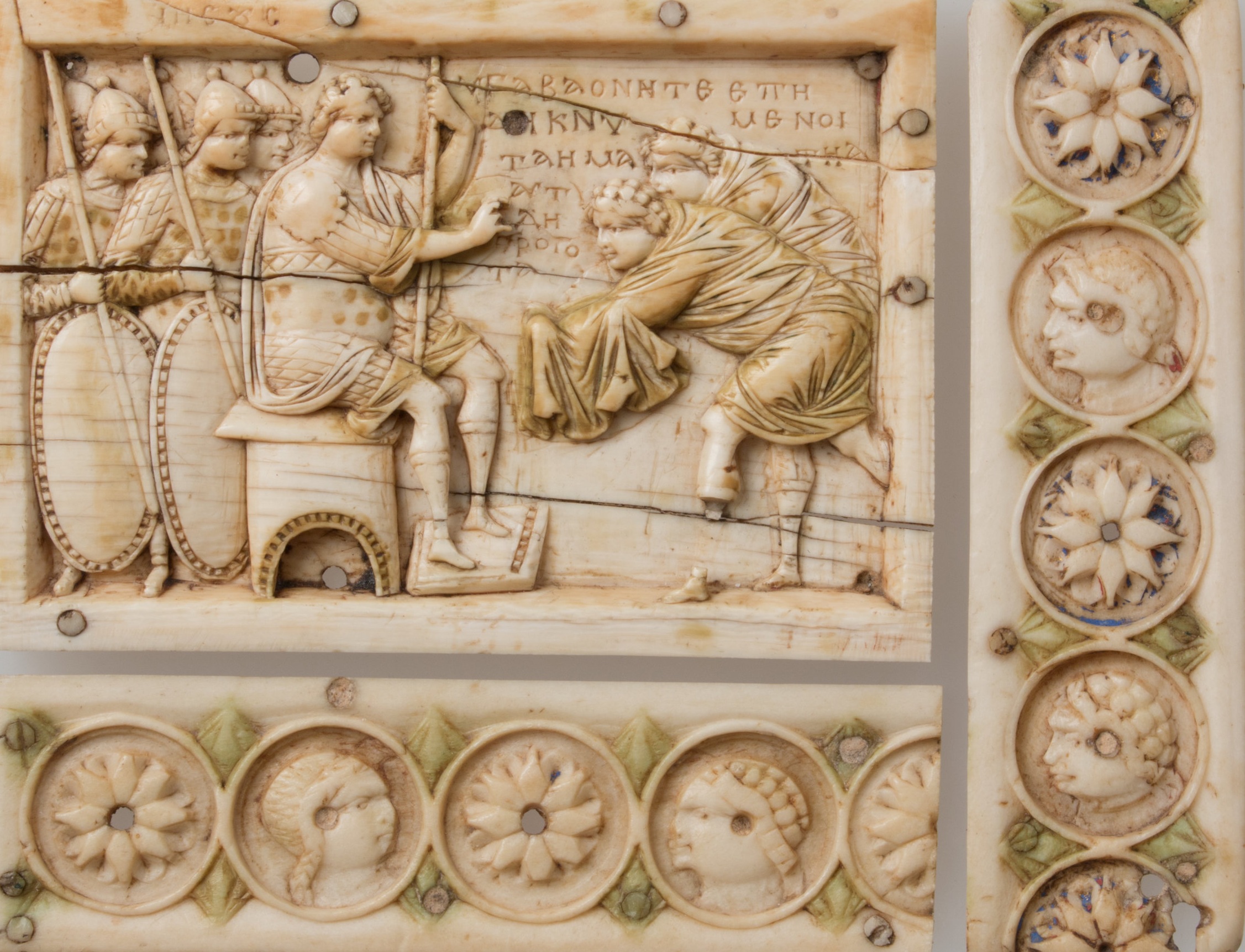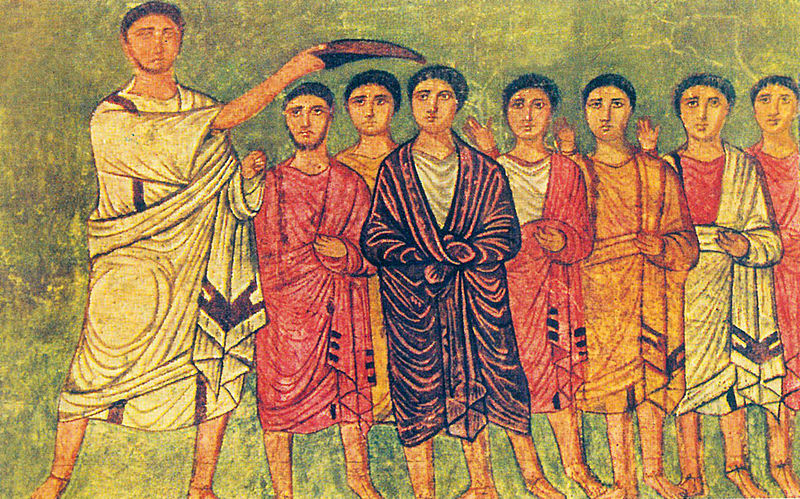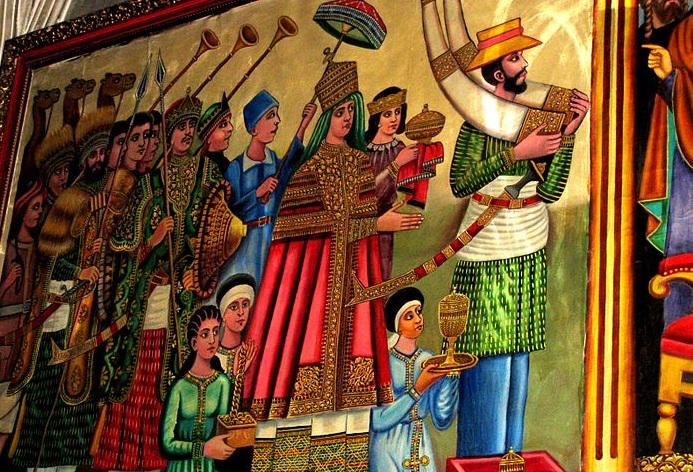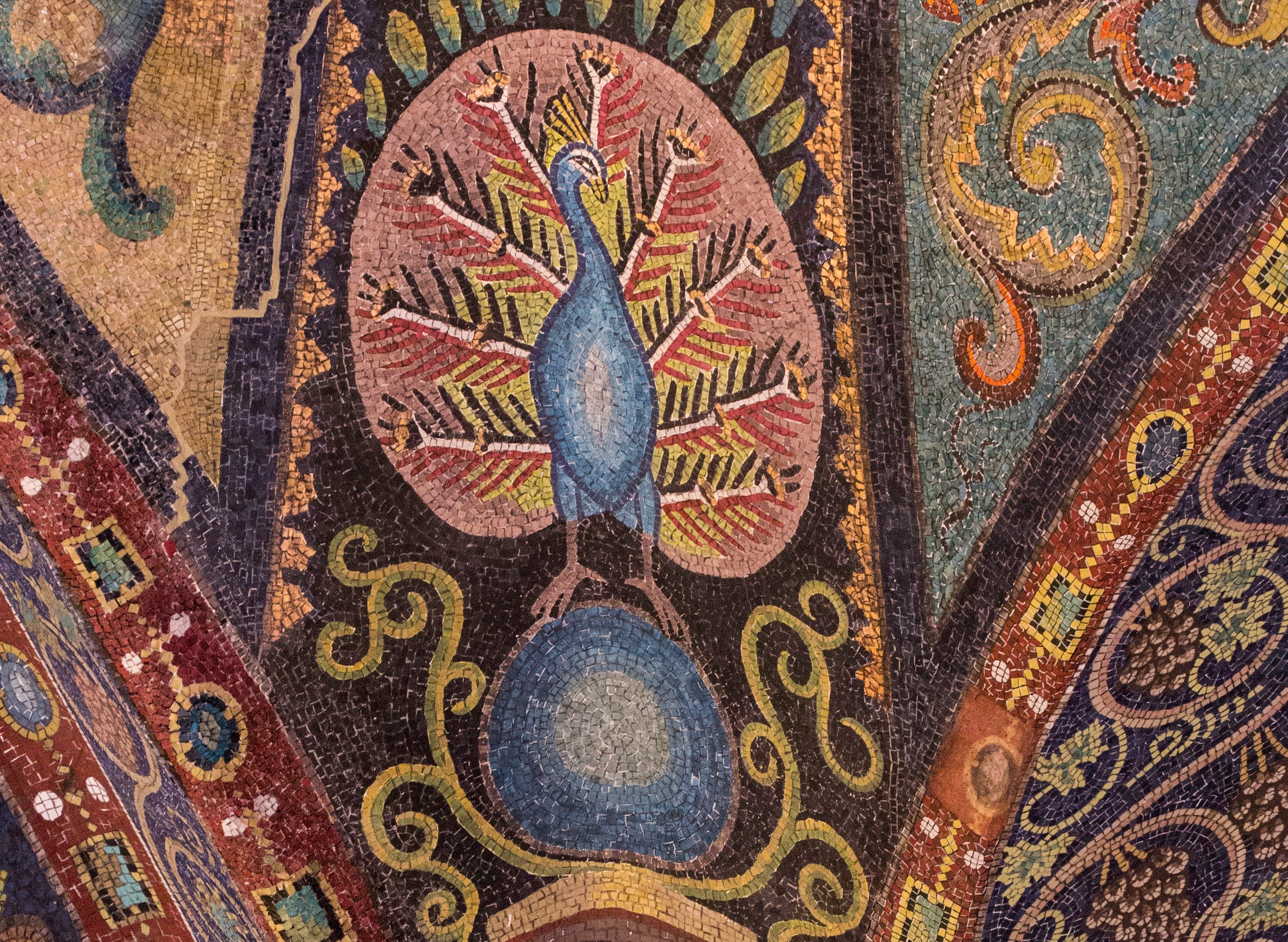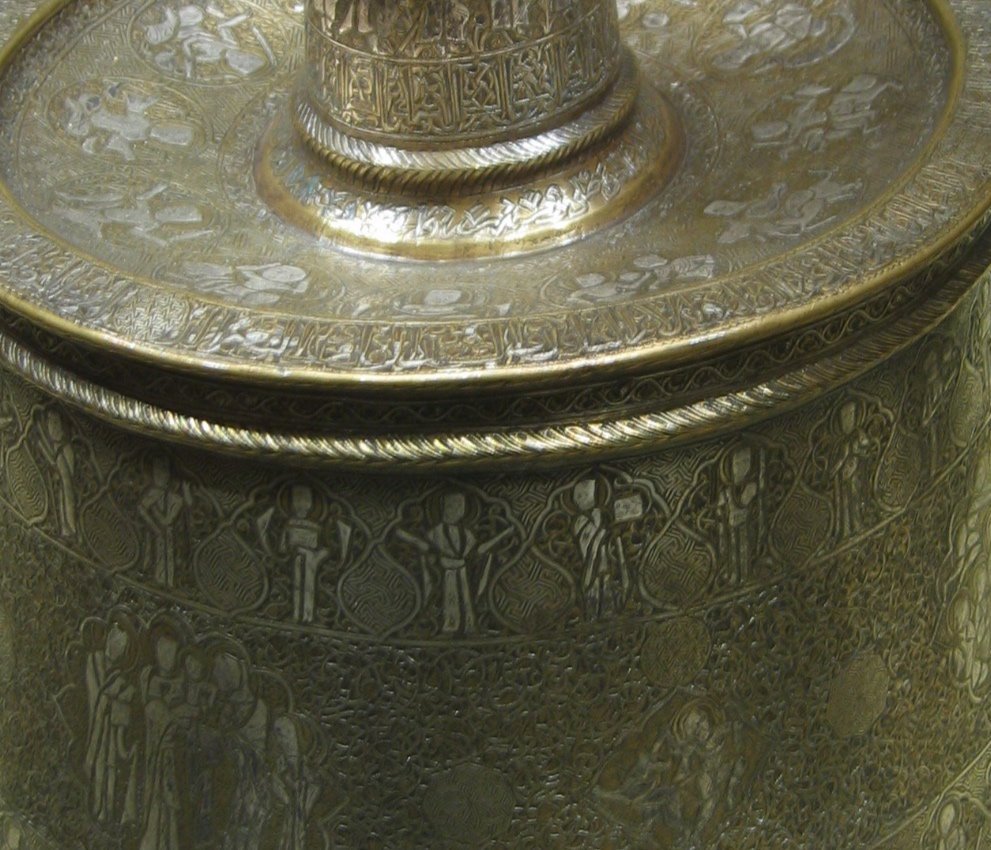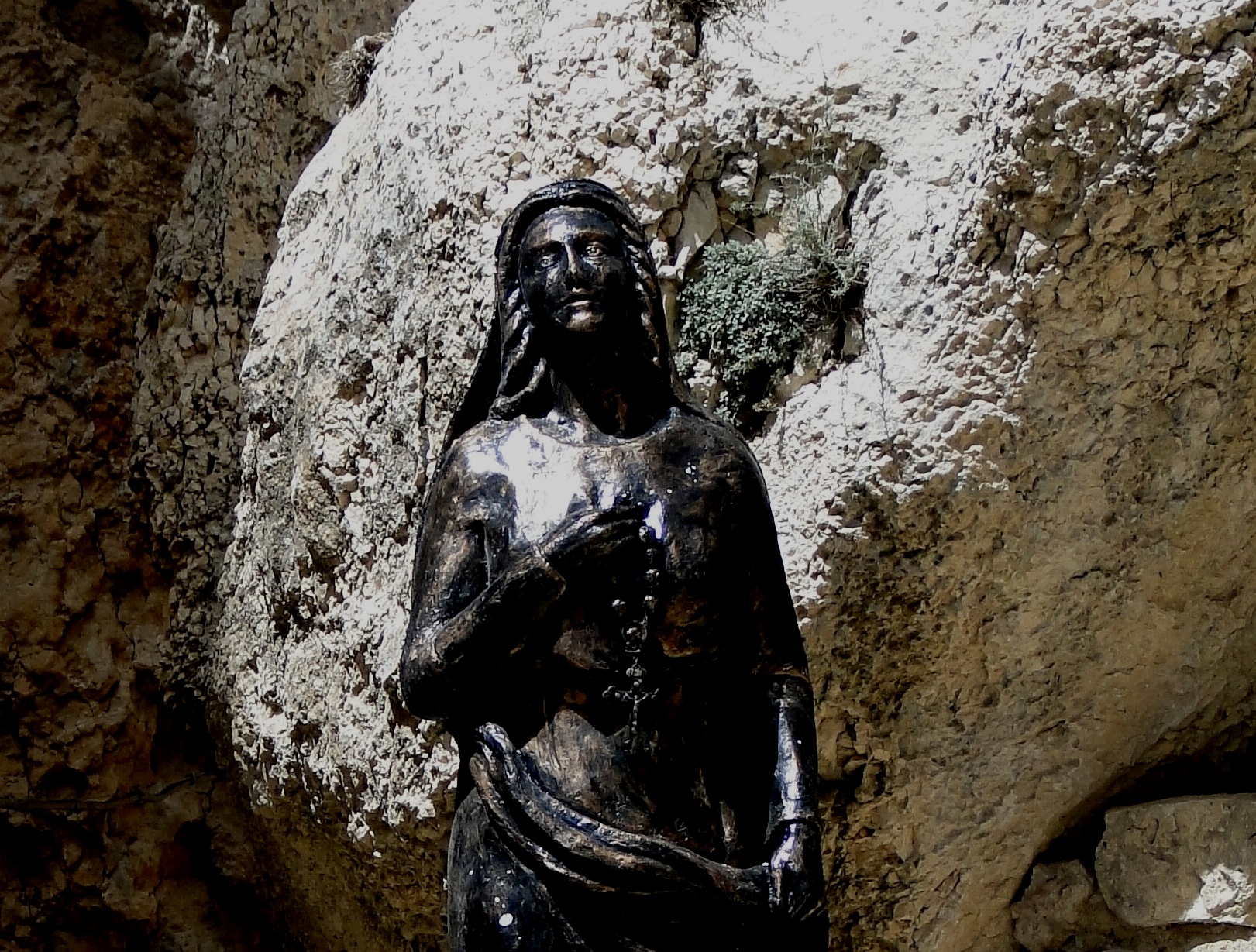We Wait for the True King
Bible Studies, Messages, Papers on the Book of Kings
Photograph: A painting of the Queen of Sheba visiting King Solomon, in the Ethiopian Chapel in the Church of the Holy Sepulchre, Jerusalem. Photo credit: Deror Avi | CC3.0, Wikipedia Commons.
Below are messages, small group leader notes, and exegetical notes on the Book of Kings.
Notes and Essays on 1 and 2 Kings
Slides to a presentation Mako Nagasawa gave to a class at Gordon-Conwell Theological Seminary in February 2024. Here is the English text of the treatise, which Ambrose wrote in 389. See video recording. Ambrose uses King Ahab as a case study of greed when he seized Naboth’s vineyard, in 1 Kings 21. This presentation relates to the Genesis creation story because Ambrose structures it around Genesis 1. He says that God gave all humans a shared dominion over the creation. In Christ, God gives us dominion, in principle, over sin. Covetousness, therefore, is a double problem. It interferes with the shared dominion over the creation, and it causes us to fail in exercising proper Christ-centered dominion over the sin in ourselves. Ambrose shows that Ahab became cruel, like the wild dogs that eventually fed off his dead, unburied body, as in 2 Peter 2:19 - 22. Ambrose also draws upon Matthew 6:19 - 24 because of how moths and rust share in our physical goods whereas God shares in the development of our moral goodness. Ambrose draws as well on Luke 12:13 - 34 because the greedy tear down barns/granaries and build bigger ones, finding more pleasure in the rising price of grain, not its widespread availability. A few slides refer to Ambrose’s understanding of the human being as a human becoming, Jesus’ work of atonement as a medical substitution healing human nature for us and inviting us to share in him, the pressing issue being human desires and not deservingness per se, and hell as the love of God but experienced by those who have become addicted to sin.
The Peace of God: A Reflection on 2 Kings 5:1 - 19
Text of a reflection written by Mako Nagasawa on the story of the Syrian general Naaman coming to the Israelite prophet Elisha. It has missiological significance.

